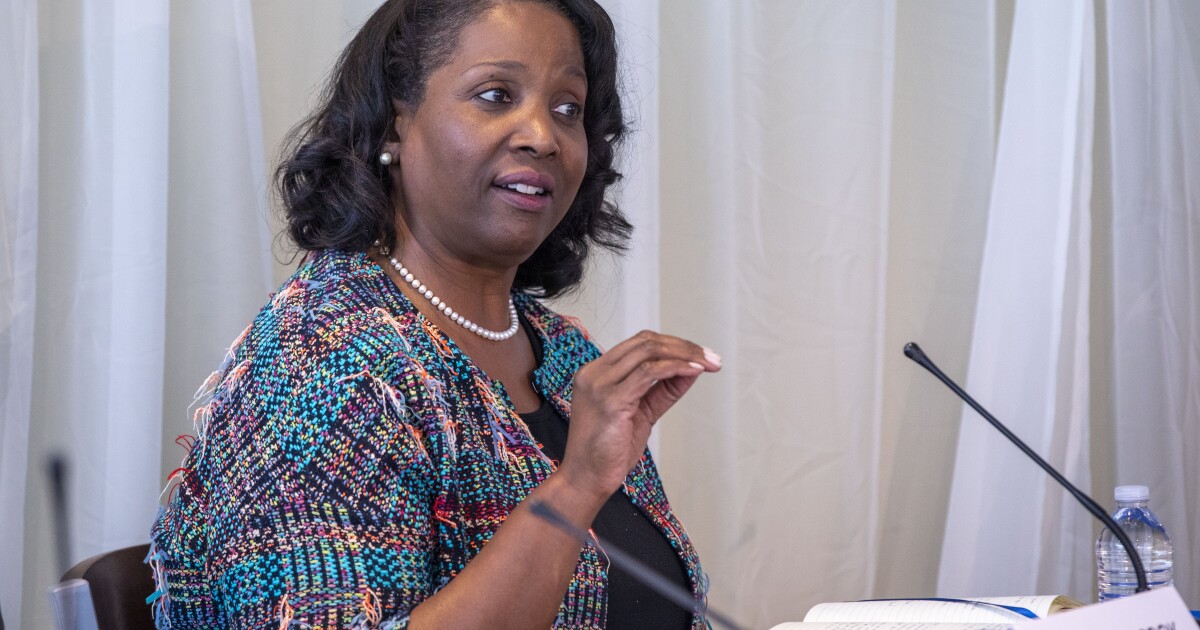
(Bloomberg) -- Former Federal Reserve Vice Chair Lael Brainard suggested there's a real risk of multiple Fed district bank presidents getting removed from office next year as a result of politically charged maneuvering by President Donald Trump.
Brainard, who served on the Fed board from 2014 to 2023, spoke a day after Trump moved to oust Governor Lisa Cook over allegations that she falsified mortgage documents. Successfully taking out Cook would give Trump the chance of gaining a majority of his picks on the seven-member Board of Governors. The board is scheduled in February 2026 to vote on renewed terms for the 12 district bank chiefs — five of whom each year vote on interest rates.
"The president essentially is moving to shift the majority of the Board of Governors well before what was contemplated in terms of the institutional structure and their terms," Brainard said in an interview on Bloomberg Television Tuesday. "And that opens the door, when renewals of all of the Reserve Bank presidents come up in February," to potentially not renew some of them, she said.
Trump has for months been criticizing Fed Chair Jerome Powell and his colleagues for not cutting interest rates this year. Powell and most of his colleagues have cited the danger of the president's tariff hikes feeding through to inflation.
Brainard said she viewed Trump's attack on Cook in the context of his broader pressure on the US central bank as an institution.
Inflation Risk
"This is not about an individual governor," said Brainard. "This is really an unprecedented attack on the independence of the Federal Reserve as an institution."
Interest rates are set by the Federal Open Market Committee, which includes the seven board members in Washington along with the New York Fed president and four other bank presidents on an annually rotating basis.
Two current Fed governors, Christopher Waller and Michelle Bowman — Trump picks from his first term — dissented in favor of a rate cut in July. Trump has nominated the White House chief economist, Stephen Miran, for an open board position. Nominations are subject to Senate confirmation.
Referring to the scenario of nixing multiple regional bank presidents, Brainard said, "That is exactly the risk that we are seeing play out right now." Attempting to "shift the overall voting majority on the FOMC that is an unprecedented attack on the independence of the Federal Reserve," she said.
Undermining that independence "means higher inflation potentially, less credibility, even higher long-term interest rates — bad for the economy," she said.
Brainard was appointed by Democratic President Barack Obama and served in President Joe Biden's administration.
More stories like this are available on bloomberg.com



